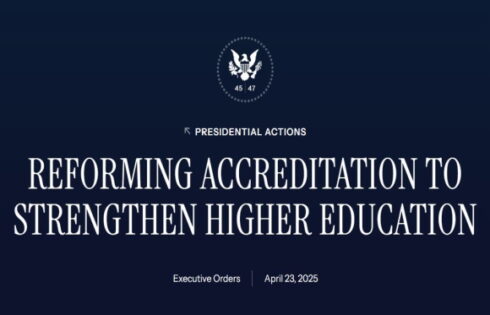
Who cares about budgeting when you can go deep with Islamic gardens?
As student loan debt continues to grow, colleges keep favoring and even expanding diversity requirements for graduation.
At the same time they are largely ignoring financial literacy as a graduation requirement, despite a finding from the Institute for College Access and Success that nearly 7 in 10 college students who graduated in 2014 had student loan debt.
The average debt of those students with loans? $28,950.
An analysis of the Big Ten conference by The College Fix finds that all 14 member schools – perhaps foreshadowing a conference-wide problem with math – require some sort of diversity, culture or inclusion class for graduation.
Just one school requires all students to learn how to handle debt or save for retirement, while two others are restricted to smaller student groups.
The Fix analysis looked at diversity, race or inclusion classes mandated as part of a “core curriculum,” while counting any program that meets a loose definition of personal finance and is required for at least some students.
DepEd adds financial literacy to basic education curriculum | https://t.co/Fuo0Ksnkjg pic.twitter.com/lgQfl5XDtz
— The Philippine Star (@PhilippineStar) June 23, 2016
The University of Nebraska-Lincoln offers a personal finance seminar as part of its first-generation student orientation, but that program only hosts 200 students in a school of 25,000 undergraduates. Heather Reed, director of First-Year Experience and Transition Programs, told The Fix that students can take seminars as part of the orientation on budgeting, credit management or financial aid.
Reed said that for many of these first-generation students, this is the first time they are responsible for their own money. She said that while some colleges and departments within the university may touch on the issue in online modules for freshmen, there is no university-wide requirement.
One of the larger programs is Ohio State University’s “Second Year Transformational Experience Program.”
The 1,600 students in the STEP program take a “financial wellness program,” which includes online modules covering “financial goal setting, budgeting, interest rates, loan basics, repayment options and an overview of personal credit.”
The second part involves “each STEP participant engaging in an individual, face-to-face one-hour session with a trained financial wellness coach.”
Indiana University-Bloomington mandates financial literacy for all incoming freshmen, but it involves only a “60-minute online learning unit about personal finances.”
Some schools even require more than one diversity requirement to graduate. The University of Illinois at Urbana-Champaign recently doubled diversity requirements for all incoming members of the class of 2018.
While UIUC doesn’t require experience in balancing a checkbook or investing, students can fulfill a diversity requirement through “Asian American Pop Culture” or “Islamic Gardens and Architecture.” (Purdue University also requires more than one diversity class.)
At Northwestern University, first-year seminars cover a wide variety of topics, but none on personal finance or consumer economics. The classes include “Sleep,” “Secret Life of the Fetish” and “Growing up Gay.”
Wow: High school students open an actual bank on campus to teach financial literacy – Financial… https://t.co/MFrzmfizUb
— Boyce Watkins, PhD – Wealth is Power (@drboycewatkins1) June 21, 2016
Several schools had room in their core curriculum for financial-literacy classes. For example, University of Minnesota students have to take a “Civic Life and Ethics” requirement.
Asked by The Fix about offering a personal finance class to satisfy this requirement, the One Stop student-services office at UMinn deferred questions to media relations, which did not respond to a request for comment.
A survey commissioned by online loan provider LendingTree showed a demand for financial literacy even at the high school level.
“When Millennials were asked if personal finance and financial literacy should be taught before high school graduation, 88.0% agreed it should be part of the high school curriculum,” LendingTree said in April. “Almost 60% of Millennials believed that high school students should be required to pass a personal finance or financial literacy test prior to graduation.”
Big Ten schools that respond to this demand for financial literacy shouldn’t have trouble expanding their infrastructure. Of the top 25 business schools ranked by U.S. News and World Report, three are in the Big Ten – Northwestern, Indiana University and University of Michigan.
Like The College Fix on Facebook / Follow us on Twitter
IMAGE: Elnur/Shutterstock






Please join the conversation about our stories on Facebook, Twitter, Instagram, Reddit, MeWe, Rumble, Gab, Minds and Gettr.